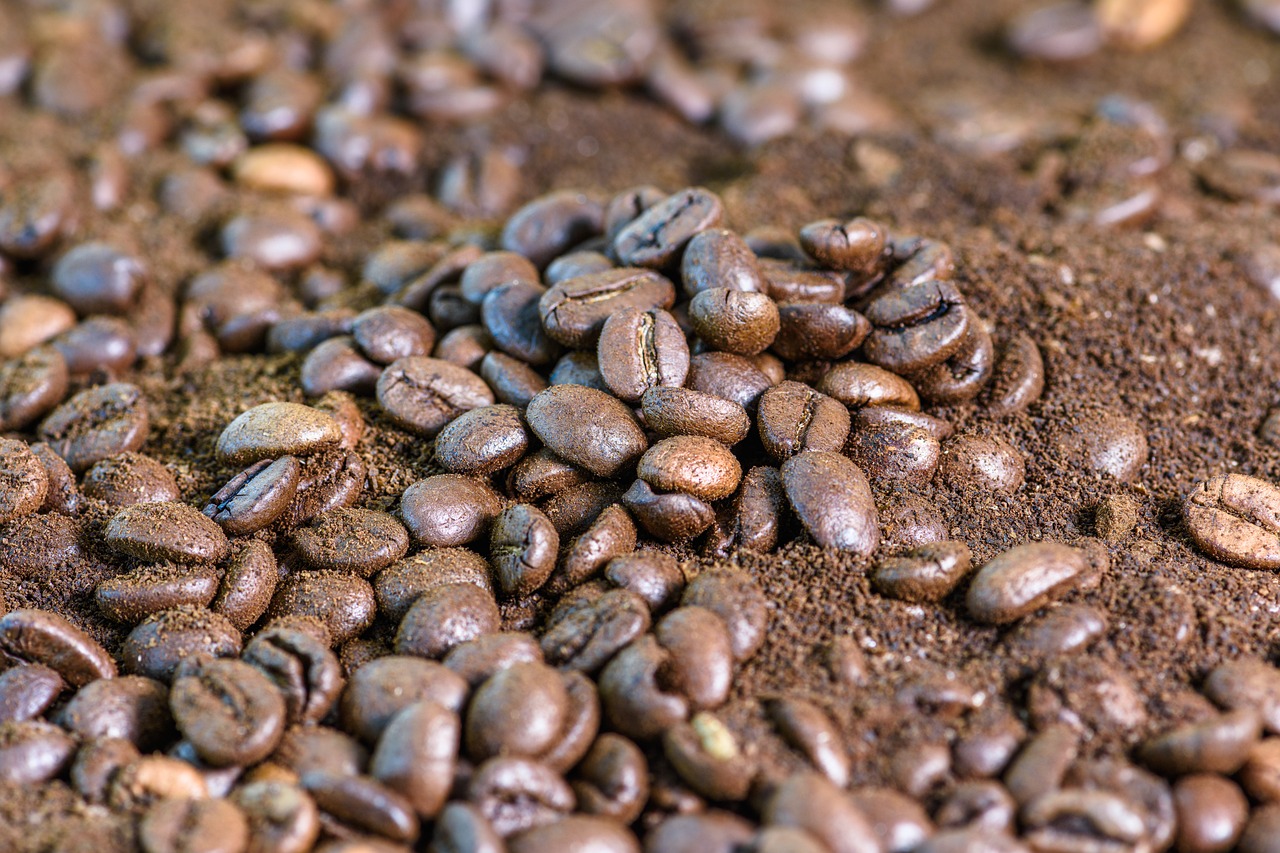Table of Contents
Coffee Grounds as Plant Fertilizer: Breaking New Ground
Coffee grounds have long been regarded as waste, but recent studies reveal their potential as a groundbreaking fertilizer. With their high nutrient content and surprising benefits, coffee grounds are revolutionizing the way we care for our plants.
Nutrient-Rich Soil Booster: Unveiling the Hidden Power
Coffee grounds, once discarded, are now gaining recognition for their role in enriching soil. Packed with essential nutrients like nitrogen, phosphorus, and potassium, they provide a natural fertilizer that promotes healthy plant growth. This groundbreaking discovery challenges traditional methods of soil enrichment and offers a sustainable and cost-effective alternative.
Research has shown that coffee grounds enhance soil fertility by improving its structure and water-retaining capacity. The organic matter in coffee grounds also encourages the growth of beneficial microorganisms, which break down nutrients and make them more readily available to plants. This newfound understanding of coffee grounds’ hidden power is driving a shift towards eco-friendly gardening practices.
Gardeners are increasingly utilizing coffee grounds to enhance the health and productivity of their plants. By incorporating coffee grounds into the soil, they are able to provide a slow-release source of nutrients that promotes vigorous growth and improved overall plant health. Moreover, coffee grounds also act as a natural pH balancer, helping to maintain the optimal acidity levels for various types of plants. This versatility makes coffee grounds an attractive option for gardeners of all levels of expertise.
Unlocking Coffee Grounds’ Pesticidal Potential: A Silent Revolution
Coffee grounds, it seems, possess more than just nutritional value. Recent studies have unveiled their surprising ability to act as a natural pesticide, offering a chemical-free alternative to protect plants from harmful pests and diseases. This groundbreaking revelation is revolutionizing the field of pest management.
The caffeine present in coffee grounds acts as a natural deterrent for insects, repelling them from the garden. Additionally, coffee grounds have antimicrobial properties that help fight fungal infections, preventing the spread of diseases among plants. This silent revolution in pest control is not only environmentally friendly but also reduces reliance on synthetic pesticides, benefiting both the plant and the planet.
By incorporating coffee grounds into their gardening routine, individuals can reduce their reliance on harmful chemical pesticides. This not only protects the health of plants and the surrounding ecosystem but also reduces the risk of potentially harmful residues on fruits and vegetables. Furthermore, the use of coffee grounds as a natural pesticide aligns with the growing trend towards sustainable and organic gardening practices, ensuring a healthier and more environmentally friendly approach to cultivation.
Waste Not, Want Not: Transforming Coffee Grounds into Green Energy
The disposal of coffee grounds has long been a challenge, but innovative solutions are emerging that turn this waste into a valuable resource. Groundbreaking technologies are harnessing the energy potential of coffee grounds, providing a sustainable alternative to traditional energy sources.
Through anaerobic digestion, coffee grounds can be converted into biogas, a renewable energy source. This process not only produces clean energy but also helps reduce greenhouse gas emissions. The utilization of coffee grounds in the energy sector is a testament to the transformative power of innovative thinking in achieving a greener future.
By diverting coffee grounds from landfills and utilizing them as a source of renewable energy, we can significantly reduce our carbon footprint and move one step closer to a more sustainable society. The conversion of coffee grounds into biogas not only offers an environmentally friendly solution to waste management but also presents economic opportunities. The growing demand for renewable energy opens up avenues for businesses to explore the commercial viability of coffee ground-based energy projects, potentially creating jobs and driving economic growth.
Coffee Grounds: From Cup to Compost Pile
Composting has always been an effective way to recycle organic waste and nourish the soil. With the revelation of coffee grounds as an excellent composting material, this practice is becoming even more popular.
Coffee grounds, with their high nitrogen content, act as a valuable ingredient in compost piles. They provide a rich source of organic matter that helps create nutrient-rich soil. When combined with other compostable materials like food scraps and yard waste, coffee grounds contribute to the breakdown of organic matter, resulting in nutrient-dense compost that can be used to improve soil fertility.
In addition to the nutritional benefits, coffee grounds also enhance the texture and water retention capabilities of compost. The fibrous nature of coffee grounds helps to improve aeration and drainage in the compost pile, creating an ideal environment for beneficial microorganisms to thrive. Furthermore, coffee grounds have been found to suppress the growth of certain weeds, reducing the need for herbicides in the garden.
With the rise in awareness about the benefits of composting, more individuals are incorporating coffee grounds into their compost piles. Whether in small backyard compost bins or large-scale composting operations, coffee grounds are proving to be a valuable addition that enhances the quality and efficiency of the composting process. The use of coffee grounds in composting not only reduces waste but also promotes sustainable gardening practices that nourish the soil and promote plant health.

